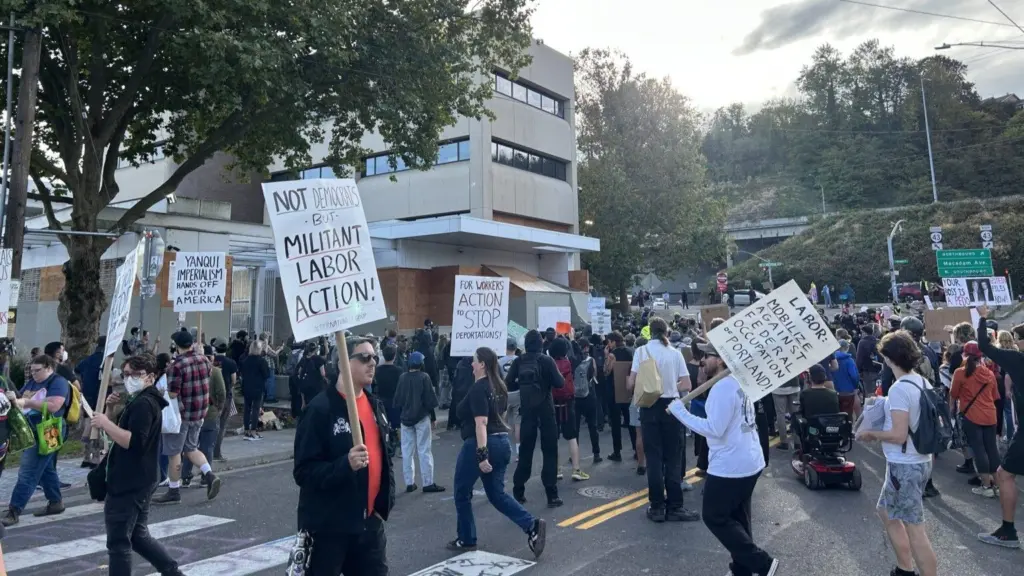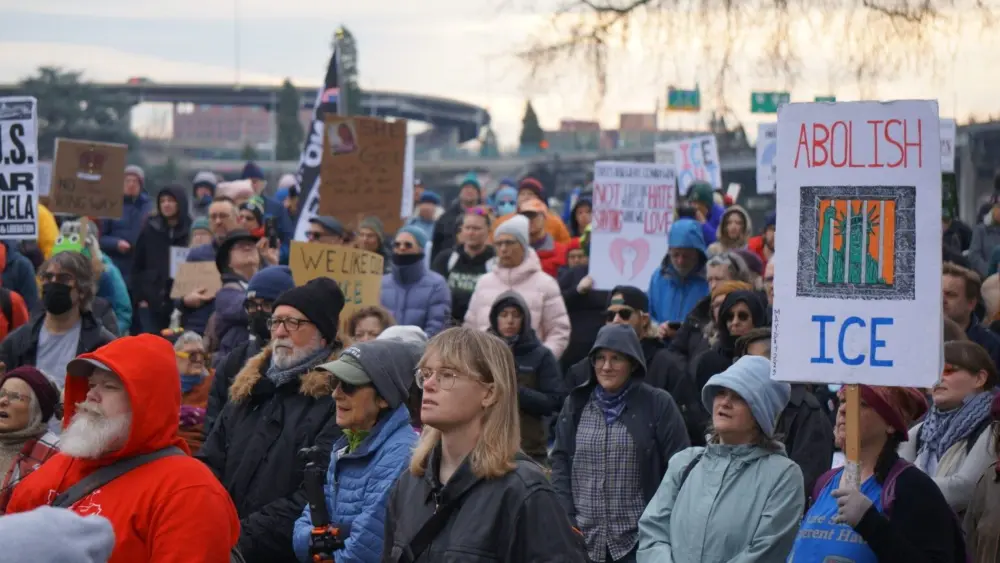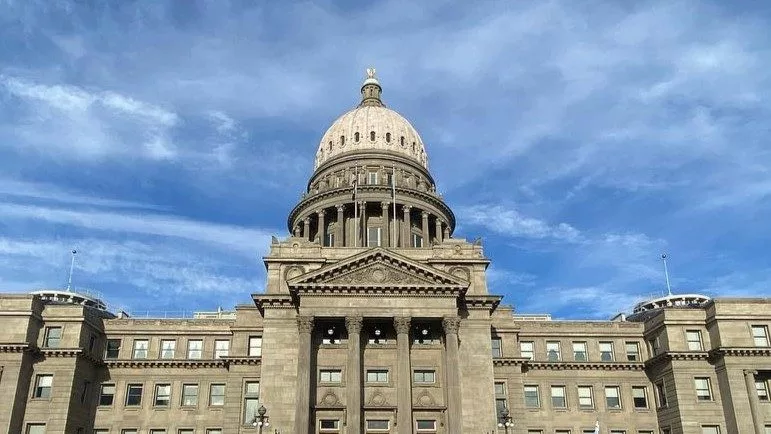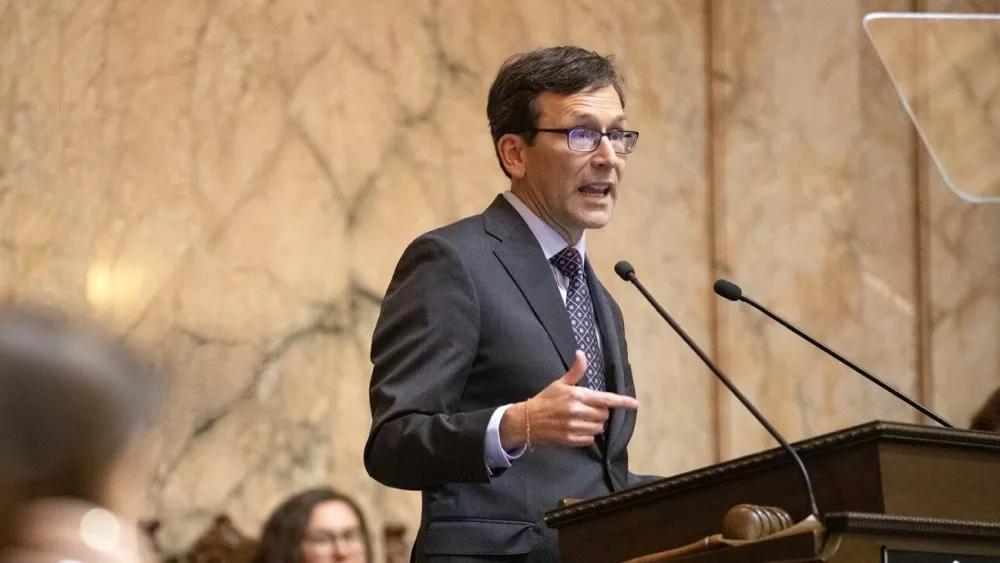PORTLAND, OR – Three judges will decide “as quickly as possible,” they said, whether to uphold a temporary order barring President Donald Trump from deploying Oregon National Guard troops to Portland.
U.S. Circuit Judges Susan Graber, Ryan Nelson and Bridget Bade heard oral arguments Thursday morning from the state of Oregon and the Trump administration in the 9th Circuit Court of Appeals in San Francisco.
Lawyers for the federal government are appealing a temporary restraining order that blocks Trump and Defense Secretary Pete Hegseth from deploying 200 Oregon Guard troops to Portland to guard federal buildings, and particularly an Immigration and Customs Enforcement building south of downtown where mostly small, peaceful protests have taken place throughout the summer.
Trump-appointed Nelson and Bade seemed ready to hand Trump the authority he seeks to deploy the Guard, while Graber, an appointee of former Democratic President Bill Clinton, challenged the federal government’s use of emergency orders in a case involving protests that have averaged under 30 people each day throughout the summer.
U.S. District Court Judge Karin Immergut, also a Trump appointee, granted the restraining order against Oregon Guard deployment on Saturday, saying the Trump administration had not made the case that a “rebellion” was taking place at the protests outside the ICE facility.
A stay would prevent Immergut’s order from taking effect, but because of a second, broader restraining order she issued Sunday that has not yet been appealed, federal troops still couldn’t be deployed.
Trump and Hegseth called up the 200 Oregon Guard troops on Sept. 28 and placed them under control of the U.S. Northern Command, a joint federal military command based in Colorado. They have been waiting and training at Camp Rilea in Warrenton for over a week.
The appeals case does not include California, which joined Oregon and Portland in seeking a second temporary restraining order Sunday after the Trump administration tried to send first California troops and then troops from Texas to Portland. Immergut issued that emergency order Sunday night, blocking Trump from deploying troops from any state to Portland and saying the administration was working “in direct contravention” to her Saturday order.
Before that order, however, roughly 200 National Guard members from California were called up to Oregon under orders from Trump. They are training at Camp Withycombe in Happy Valley, and taking orders from U.S. Northern Command while they wait to learn whether they will be deployed or sent home.
Under Immergut’s Sunday ruling, no troops can be mobilized to Portland until Oct. 19. She scheduled a check-in for Oct. 17 and a hearing on the merits of the state’s case for Oct. 29.
As it was for Immergut, how to define a “rebellion” was a big topic among the judges and the lawyers at the appeal’s court on Thursday. Representing the state and the city of Portland was Senior Assistant Oregon Attorney General Stacy Chaffin, and representing the federal government was U.S. Department of Justice Attorney Eric McArthur.
Chaffin challenged the federal government’s insistence that protests in Portland are a rebellion as defined as “a deliberate, organized resistance by force and arms to the laws and operations of the government,” as broad and not the reality of what is happening on the ground.
From the start of the hearing, Judge Nelson echoed McArthur’s arguments that there be “great deference” owed to the president in deciding when and under what circumstances the National Guard can be deployed.
He challenged Immergut’s decision in the lower court to look more squarely in her assessment at what was happening at the ICE facility around the time Trump decided to call up the Oregon Guard, and instead focused on depictions from federal officers at the ICE facility in June that they were understaffed to handle protests. The facility was closed for three weeks in June so windows could be boarded up and spray paint could be removed.
“The president gets to direct his resources as he deems fed. And it just seems a little counterintuitive to me that the city of Portland can come in and say, ‘No, you need to do it differently,’” he said.
Oregon’s Gov. Tina Kotek and Portland Mayor Keith Wilson, as well as Portland Police Chief Bob Day, have said the protests outside of the ICE building in Portland do not rise to the level of a rebellion, and that local law enforcement is not challenged in ensuring building and protestor safety.
Chaffin reminded the judges that declarations from federal officials at the ICE facility in the lead up to more federal officials being sent discuss issues with being short-staffed and dealing with administrative difficulties, but most of their correspondence with local authorities described uneventful days and evenings that typically drew less than 30 protestors.
“That is not a reason to bring the military into the streets of Portland or any other city in the United States,” she said. “There needs to be something more than a deficit of employees to raise the level of such a significant incursion into the sovereignty of a state.”
Trump in announcing he’d send National Guard to Portland, via a post on his social media site TruthSocial claimed, against enormous evidence to the contrary, that Portland is a “war zone.”
Chaffin doubled down on an argument the state previously made to Immergut that that post should not be considered a principle document expressing a rationale for the deployment.
“Within that document, the president references Portland as ‘war ravaged,’ which we all know is not accurate, and then it also calls Portland ‘under siege,’ also an inaccurate statement,” Chaffin said. “Because these are inaccurate statements, they can’t form the basis of a colorable argument.”
Chaffin also argued that the federal government request for troop deployment is not just to the ICE facility in Portland but to all federal facilities in Portland and to protecting all manner of federal employees.
She noted that since protests began four months ago, the federal government has prosecuted 22 protestors for crimes against the ICE building or federal officers.
“That’s how this process is supposed to work. It’s not that there is a protest, and then you just send in the military. This is protected speech, and for the most part, it is calm and sedate” she said.
On behalf of the federal government, 19 Republican state attorneys general submitted a brief in support of the federal government’s case, and in support of Oregon, 20 Democratic state attorneys general and the governors of Kansas, Kentucky and Pennsylvania submitted a brief.
Oregon Capital Chronicle is part of States Newsroom, a nonprofit news network supported by grants and a coalition of donors as a 501c(3) public charity. Oregon Capital Chronicle maintains editorial independence. Contact Editor Julia Shumway for questions: info@oregoncapitalchronicle.com.





